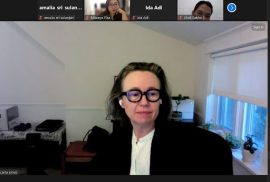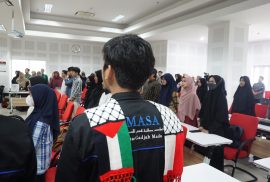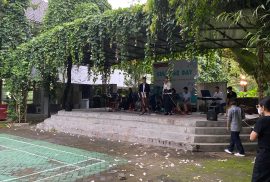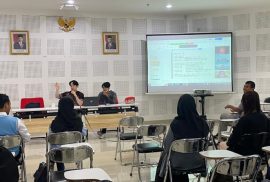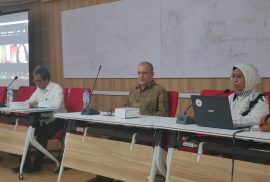SDGs 4: Quality Education | SDGs 4: Cultural diversity | SDGs 4: Education | SDGs 8: Culture | SDGs 9: Access to the internet | SDGs 11: Cultural heritage | SDG 16: Peace justice and strong institutions | SDGs 16: Accountable institutions | SDGs 16: Education | SDGs 17: Partnerships for the Goals | SDGs 17: Global partnership
SDGs 17 global partnership
SDG 2: Zero Hunger | SDGs 2: End hunger | SDG 5: Gender equality | SDGs 5: Equality | SDG 6: Clean water and sanitation | SDGs 6: Clean water | SDG 10: Reduced inequalities | SDGs 10: Children | SDG 11: Sustainable cities and communities | SDGs 11: Community | SDG 16: Peace, justice and strong institutions | SDGs 16: Conflicts | SDG 17: Partnerships for goals | SDGs 17: Global partnership
In the midst of the raging conflict, the Palestinian people continue to struggle tirelessly to survive. To find out more about their condition and struggle, students of the Faculty of Cultural Sciences, Universitas Gadjah Mada attended a TALK SHOW entitled “The Struggle of Palestinian Women and Children Amidst the Israeli Onslaught” with FATMA ALGHUSAIN as the guest speaker. She is the Executive Director of Amna Care Fund, an organization that helps the Palestinian people, especially women and children. “I have experienced four wars while living in Palestine. But this one is not a war. This is genocide!” She said. Mrs Fatma Alghusain also explained the current situation in Palestine.
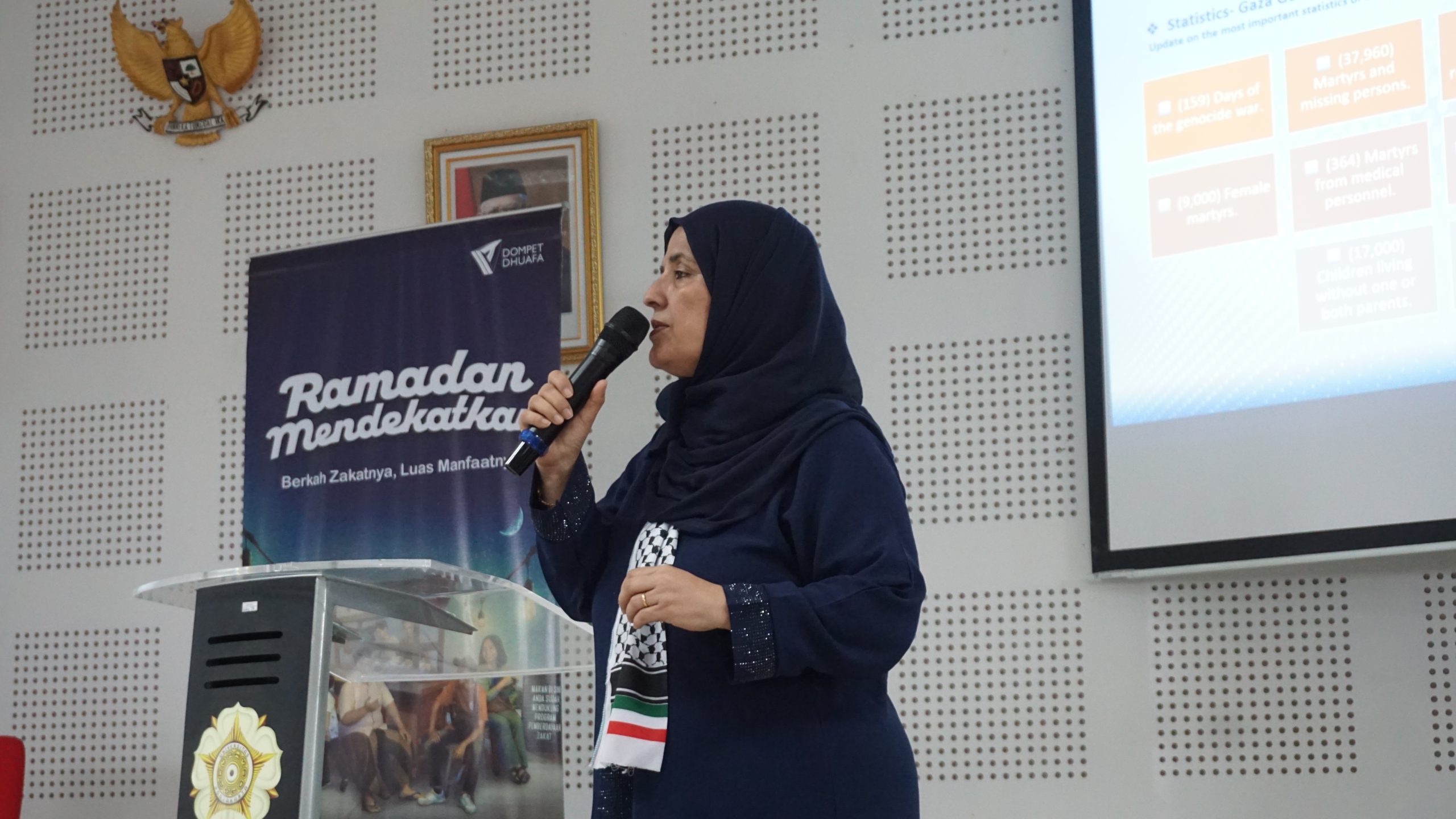
This activity will be held on Tuesday, 26 March 2024 at 11.00 – 13.00 WIB at Soegondo Building 709 for participants who can attend offline, and via the zoom link for participants who can only follow the event remotely or online. As a form of solidarity for the freedom of the Palestinian people, talk show participants can also prepare their best infaq. In addition to students, the event was also attended by the Head of Arabic Literature Study Programme UGM, Dr Zulfa Purnamawati, S. S., M.Hum. and Mr Imam Hidayat, S.Pd.I., M.Pd. as a representative of Dompet Dhuafa Yogyakarta. After the Q&A session ended, the Head of Arabic Literature UGM handed over souvenirs to the speakers. With this cooperation between the Arabic literature programme and the Dompet Dhuafa, it is hoped that it can make people aware of the current conditions in Palestine.
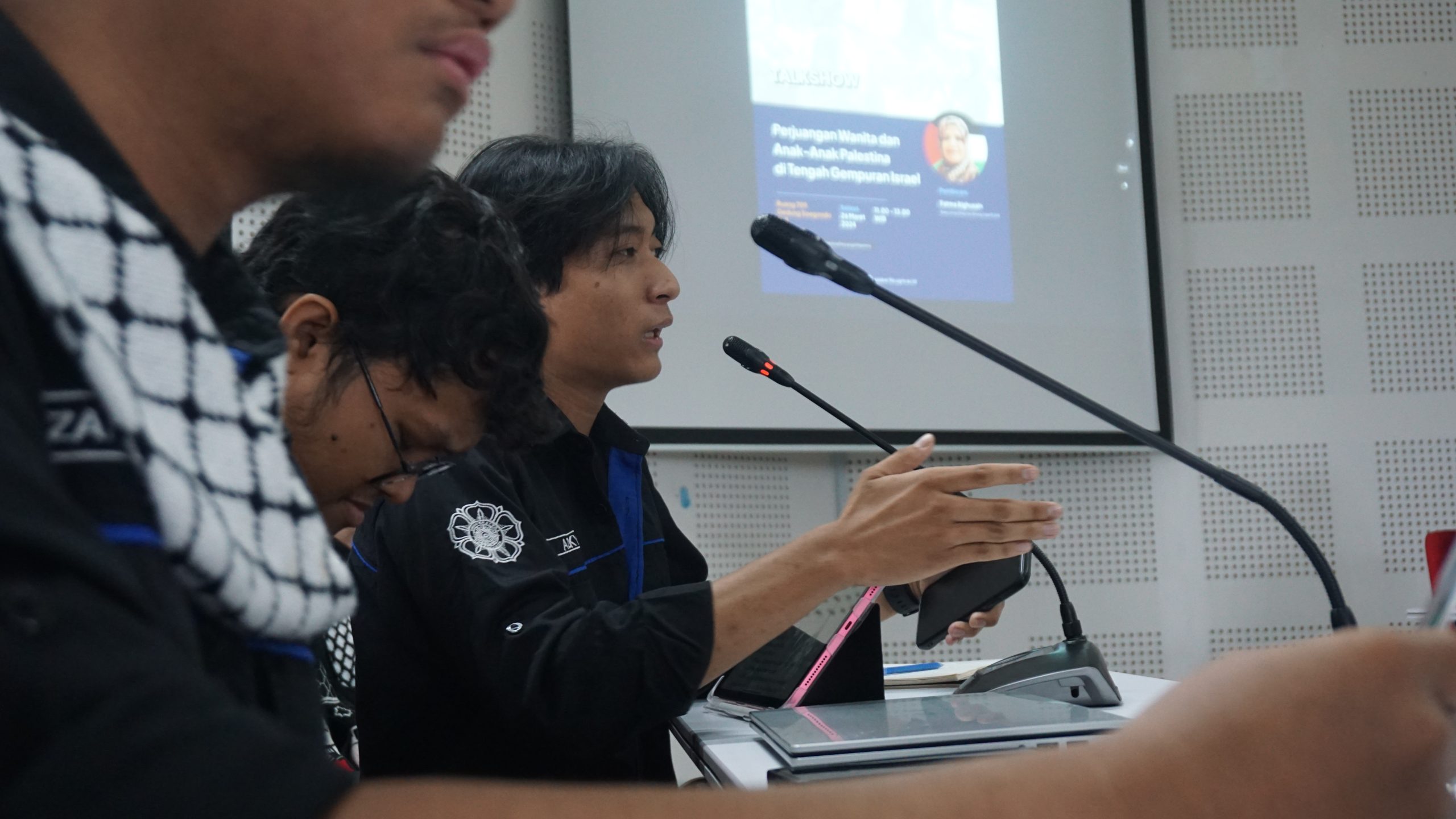
SDG 17: Partnerships for the goals | SDGs 17: Global Partnership | SDG 11: Sustainable cities and communities | SDGs 11: Cultural heritage | SDG 9: Industry, innovation and infrastructure | SDGs 9 : Cooperation
The sound of raindrops and orchestral music created a very serene and comfortable atmosphere that afternoon in the Open Field of the Faculty of Cultural Sciences. The students, who at that time were relaxing, discussing with their fellow students and doing assignments, were also carried away by the atmosphere and really enjoyed the performances from the Gadjah Mada Chamber Orchestra (GMCO) plus the melodious voices of two vocalists from Paramadaya, Faculty of Cultural Sciences. Yes, this was an activity from GMCO called “GMCO Tour De Faculty”, where they went around visiting each faculty to present their beautiful playing to the public for free. Exactly on Tuesday, 5th of March 2024, it was the turn of the Faculty of Cultural Sciences to receive this warm visit.
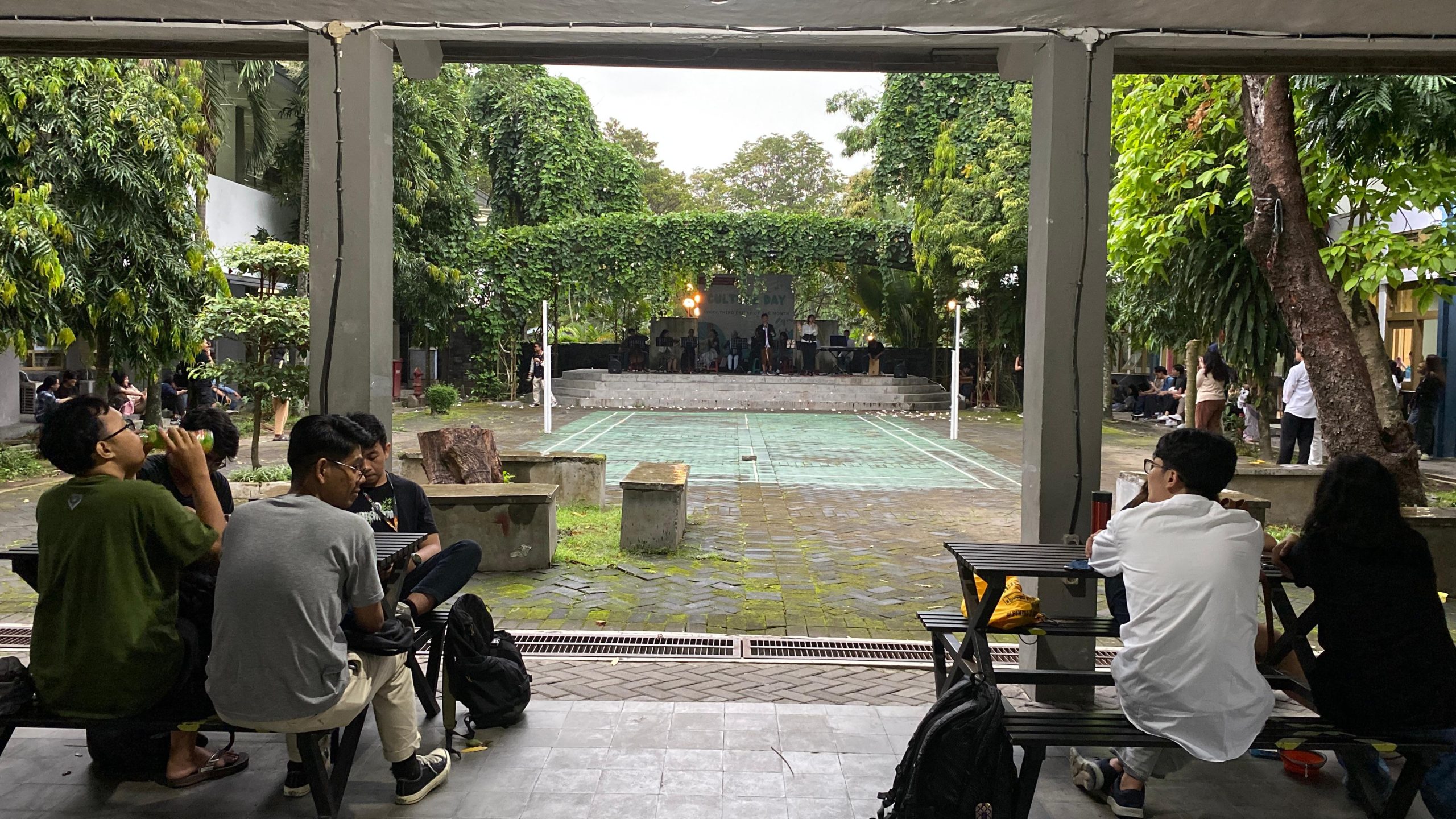
GMCO or Gadjah Mada Chamber Orchestra is one of Gadjah Mada University’s Arts UKM which specializes in the field of orchestral music which has been established since 2008. Currently, they have more than 140 active members including players and managers consisting of Gadjah Mada University students from various departments and educational levels. Not only did it aim to introduce their community to many people in each faculty, but it also turned out that this activity was also a commemoration of their 16th anniversary. Ms. Nurul Rafika, as chairman of GMCO, representing her colleagues said that they really hope that all of you can enjoy this offering.
SDG 17: Partnerships for the goals | SDGs 17: Global partnership | SDG 16: Peace, justice and strong institution | SDGs 16: Conflict resolution | SDG 11: Sustainable cities and communities | SDGs 11: Community
On Tuesday, February 13th 2024 at 1 until 3 pm, the UGM Japanese Language and Culture Study Program held a public lecture on the topic “Will Japan become a ‘normal country’?: Changes in the Defense Debate Before and After the Outbreak of The Ukraine War ” which was delivered by researchers and teaching staff at the Graduate School of International Cooperation Studies from Kobe University, (Ass. Prof.) Masato Nakahara. This Public Lecture was the opening for the 2023/2024 even semester lecture activities which were attended by lecturers and students of the Japanese Language and Culture Study Program, as well as students from outside the study program who were interested in Japanese issues.
In the first part, Nakahara-sensei explained the history of the formation of the Jieitai (Japanese Self-Defense Forces) after Japan’s defeat in World War II and changed in the position of the Jieitai during the Allied occupation as regulated in the Showa Constitution which was in effect to this day. The restrictions on Jieitai activities regulated in the Showa Constitution meant that Japan’s military activities were very limited, including when there was a war outside Japan, such as Russia’s war with Ukraine, which is still ongoing today. Japan’s position in relation to security and world peace is a dilemma because sending war troops abroad violates the mandate of the Shouwa Constitution, while on the other hand the international world wants Japan to play an active role in sending war troops. Especially in the current era where changes in the global political constellation after the Cold War are increasingly dynamic and real, Japan, which is required to always prioritize peace as mandated by the Shouwa Constitution (Heiwa Kenpou), needs to look for new interpretations so that it can become a ‘normal’ country, namely a country that on the one hand can maintain sovereignty, and on the other hand can play a role in world peace. After the presentation session by Nakahara-sensei, the public lecture continued with a discussion and question and answer session which was very dynamic and filled with various questions from the public lecture participants regarding Japan’s attitude and position in relation to international conflicts, geopolitical changes in East Asia and Indonesia.
Understanding the position of Japan in the context of global change is considered important for the study program’s academic community because apart from being a means of updating information related to current issues regarding the country of Japan, it is also a means of learning and inspiration for research themes concerning Japanese issues. More than that, through forums like this, cooperation between study programs and foreign institutions can be further enhanced and can become a means for study programs to facilitate their academic community to be able to move more globally, in accordance with one of the Millennium Development Goals (MDGs), namely developing global partnerships for development.
Double degree program in Heritage studies (UGM) and in critical heritage studies of Asia and Europe (Universiteit Leiden, Netherlands) is a program where postgraduate students, especially those majoring in archeology, can study in two places, namely Indonesia and the Netherlands for two semesters each and will get two degrees at once. In order to socialize this program to archeology students of Gadjah Mada University, the director of the Universiteit Leiden office and KITLV from Jakarta, Marrik Bellen, visited the Faculty of Cultural Sciences, Gadjah Mada University. Held in the multimedia room of the Margono building on February 5th 2024 at 2 pm, the Dean of the Faculty of Cultural Sciences himself gave a welcoming speech.
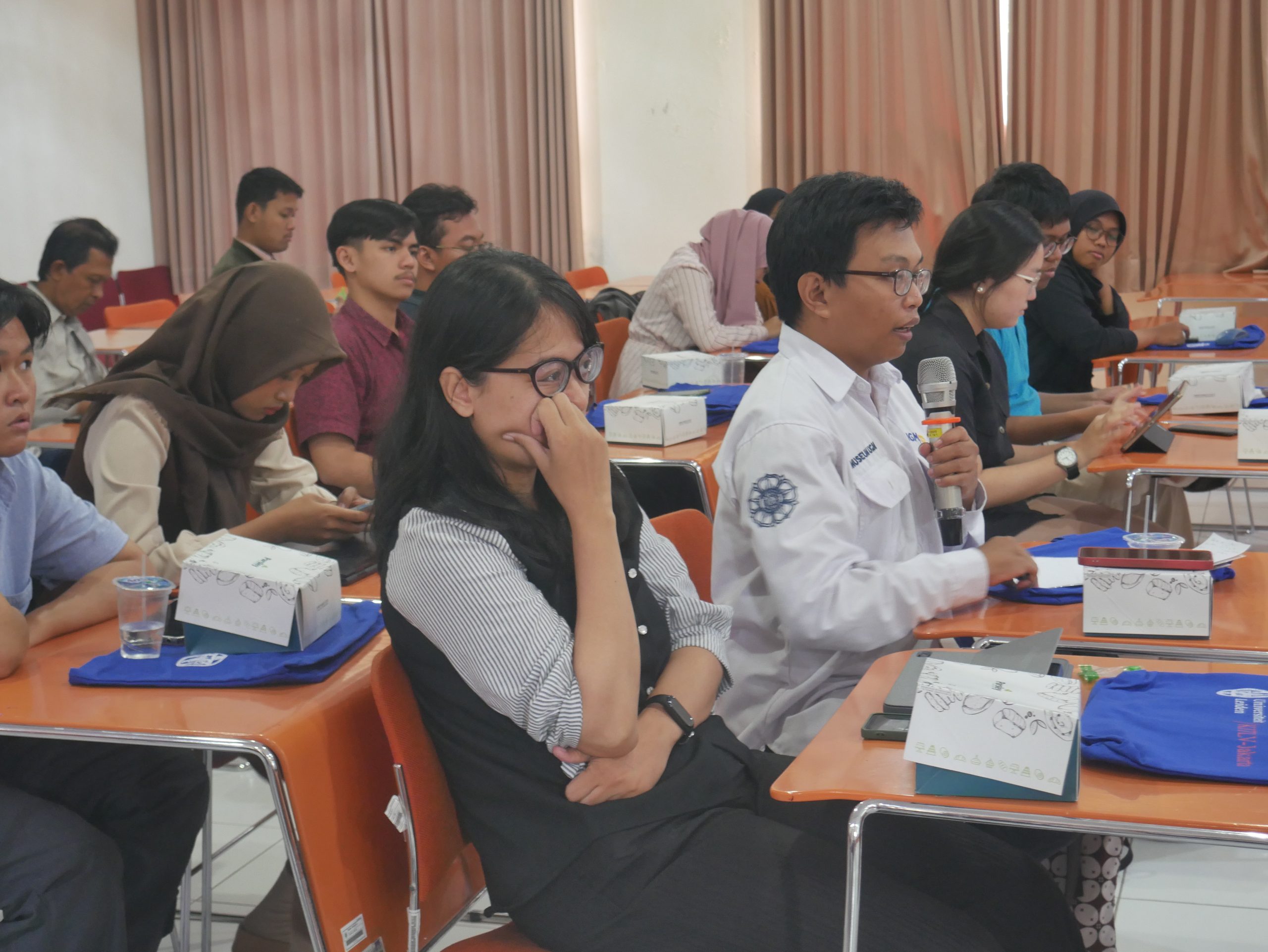
This event was attended by archeology postgraduate students both offline and online. Meanwhile, the two main speakers tasked with conveying the program mechanism were Dr. Anggraeni M.A. as the first speaker from Gadjah Mada University and Dr. Elena Paskaleva from Universiteit Leiden as the second speaker. The first speaker discussed the registration mechanism starting from the time period, requirements that must be met, registration requirements, number of students who will be accepted, and many more which can be checked on the um.ugm.ac.id page. For Indonesia. students, they will get two diplomas at once after they complete 1 year of study at their campus in Indonesia and 1 year at Universiteit Leiden. Meanwhile, Leiden students will immediately receive a diploma after completing each 1 year of study.
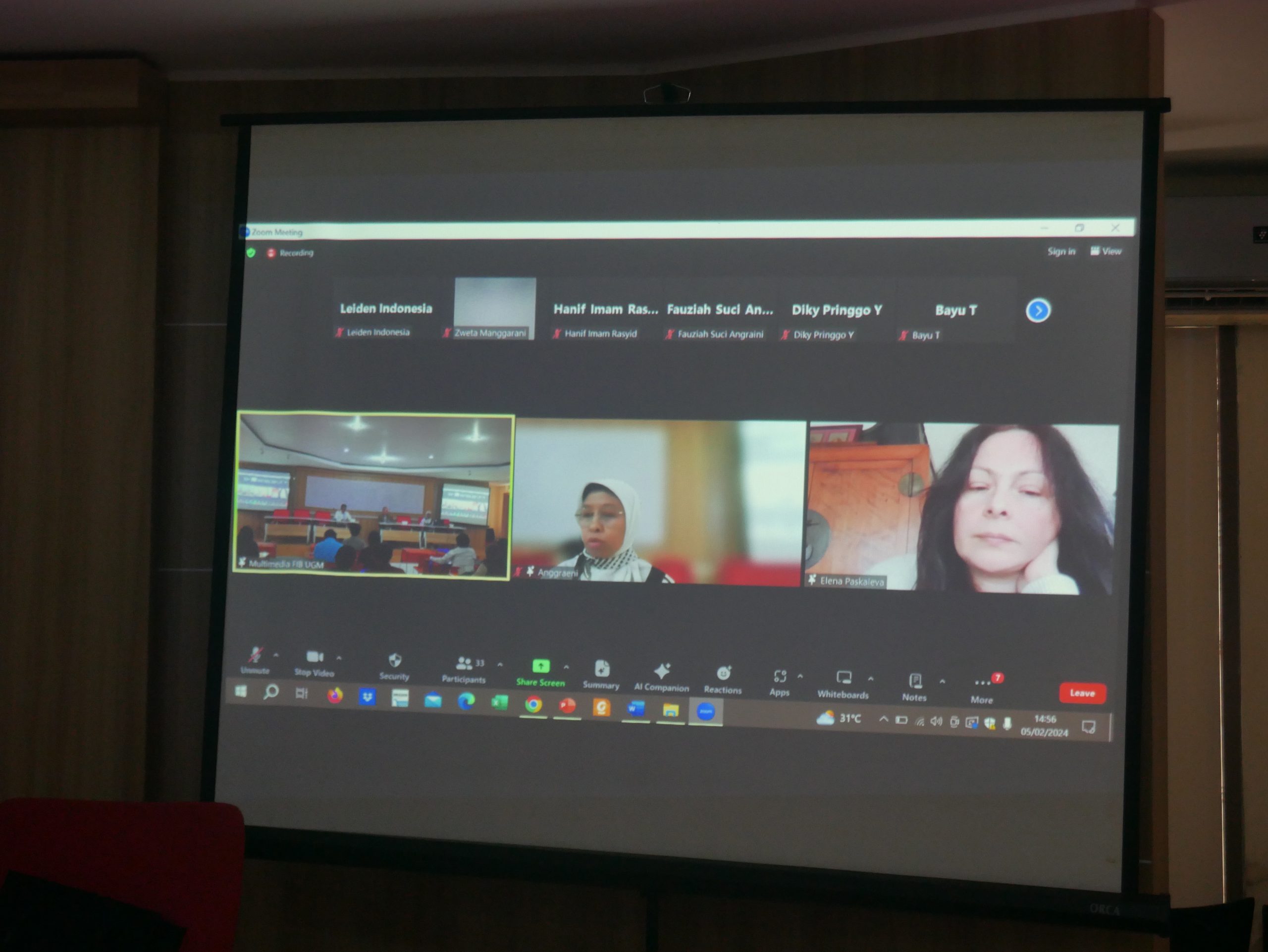
Through the zoom meeting, the second speaker focused more on explaining the mechanisms during the study. The presentation begins by giving reasons why you should study at Universiteit Leiden and what career prospects that students will get in the future. After that, she began to explain the things that needed to be prepared when studying there, such as preparing the language because all lectures will be held in English, there were 60 EC/European Credit (SKS) a year with 28 hours per EC, and there were many courses that could be chosen. such as Politics, Economics, Literature, Language, and many more. She also provides information about where students have to look for themselves, but can ask others because there are many Indonesian students studying at the university.

